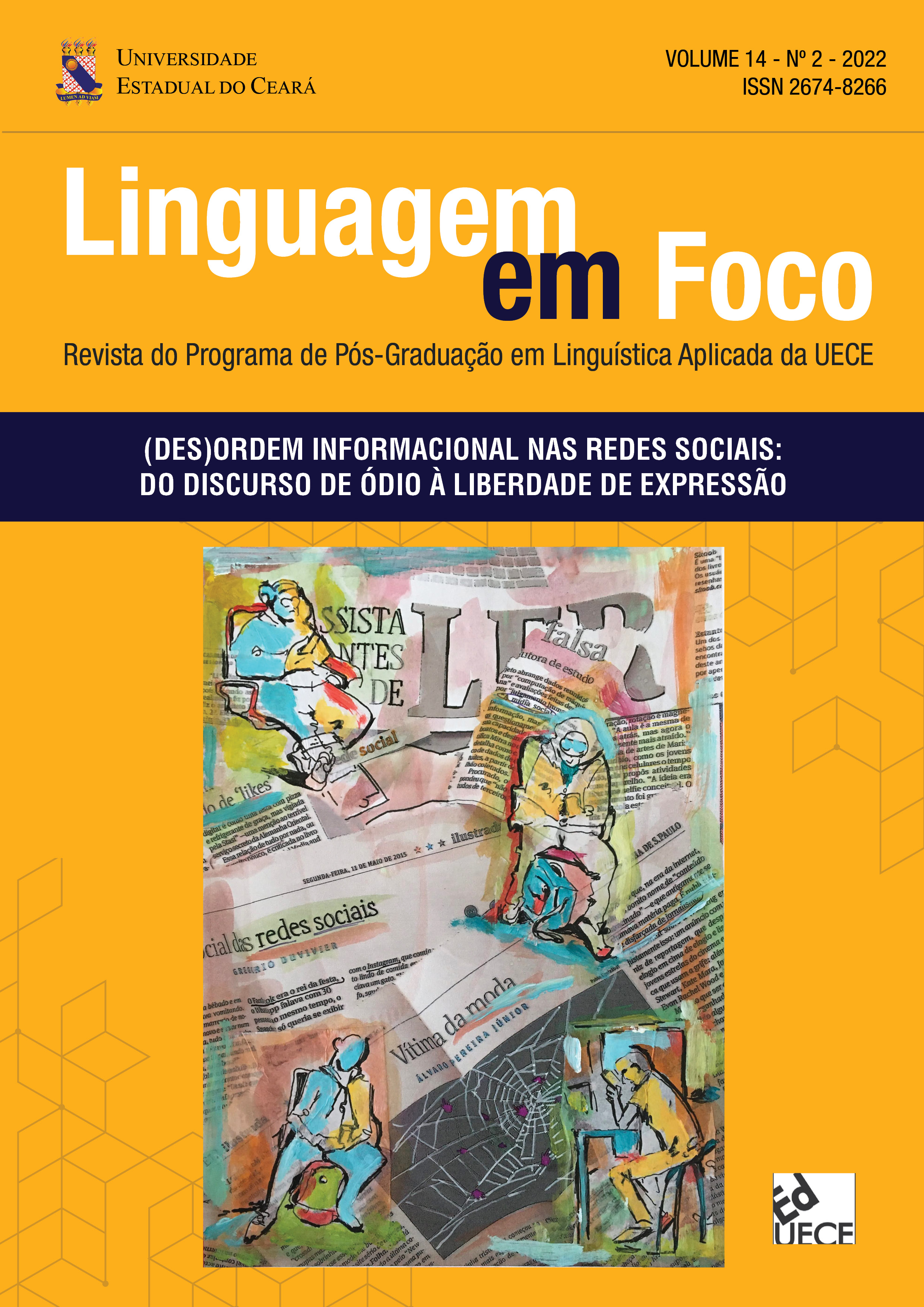From mass manipulation on social networks to actions to combat disinformation
Keywords:
Misinformation, Checking Agency, Social networksAbstract
In this text, I present a reflection about disinformation as a political-discursive strategy accepted, validated and disseminated as an “unquestionable” truth by groups in hypermedia. I question the educational, political and mediatic practice of combating disinformation with the dissemination of curated information and I compare the discursive masses with the bubbles in social networks, from a Freudian perspective of mass psychology (FREUD, 2011). Among the proposed discussions, I describe the main actions to combat disinformation established at global level, especially in Brazil, in recent years. I detail some checking agencies and socio-mediatic movements established and crossed by digital culture (CHAUÍ, 2017, 2021) that take into account critical literacy, to verify the facts and not consume disinformation, whether disseminating or producing false content. Finally, I reflect on the democratic potential of the internet and its relationship with discursive alterity in contrast to ambivalent movements of destitution of the other, strengthened by algorithms, which began to manage and standardize our subjectivities, creating predilections and consumption demands.
Downloads
References
ASSIS, J. A.; KOMESU, F., POLLET, M. A formação do leitor no contexto da desinformação e das fake news: desafios para os estudos de letramentos na pandemia da covid-19 e além. Scripta, v. 25, n. 54, p. 9-38, 2021.
CHAUÍ, M. Comunicação e democracia. PAULUS: Revista de Comunicação da FAPCOM, v. 1, n. 2, p. 15-32, 2017.
CHAUÍ, M. Ideologia da Competência. Escritos de Marilena Chauí, vol. 3. São Paulo: Autêntica, 2021.
D´ANCONA, M. Pós-verdade: a nova guerra contra os fatos em tempos de fake news. Barueri: Faro Editorial, 2018.
DUNKER, C. Subjetividade em tempos de pós-verdade. In: DUNKER, C. et al. Ética e pós-verdade. Porto Alegre: Dublinense, 2017.
FREUD, S. Psicologia das massas e análise do Eu. In: FREUD, S. Psicologia das massas e análise do Eu e outros textos (1920-1923). Tradução Paulo César de Souza. São Paulo: Companhia das Letras, 2011.
GOMES, L. F. Pós-verdade: A Nova Guerra contra os fatos em tempos de fake news. Revista Linguagem em Foco, seção resenhas, v. 11, n. 1, p. 181-184, 2019.
HAN. B. Sociedade da transparência. Petrópolis-RJ: Vozes, 2017.
HAN. B. No enxame: perspectivas do digital. Petrópolis-RJ: Vozes, 2018.
HISSA, D.; ARAÚJO, N. Infodemia na sociedade do desempenho: entre o mural panfletário e o panóptico digital. Revista Brasileira de Linguística Aplicada, v. 21, n. 4, p. 1011-1035, 2021.
LACAN, J. O Seminário de Jacques Lacan, livro 4: As Relações de Objeto. Rio de Janeiro: Jorge Zahar Editor, 1956-1957.
LACAN, J. Função e campo da fala e da linguagem em psicanálise (1953). In: LACAN, J. Escritos. Tradução de Vera Ribeiro. Rio de Janeiro: Zahar, 1998. p. 238-324.
TIBURI, M. Pós-verdade, pós-ética: uma reflexão sobre delírios, atos digitais e inveja. In: DUNKER, C. et al. Ética e pós-verdade. Porto Alegre: Dublinense, 2017.
Published
How to Cite
Issue
Section
License
Copyright (c) 2022 Débora Liberato Arruda Hissa

This work is licensed under a Creative Commons Attribution 4.0 International License.
Authors who publish in Linguagem em Foco Scientific Journal agree to the following terms:
- Authors retain the copyright and grant the journal the right of first publication. The articles are simultaneously licensed under the Creative Commons Attribution License which allows sharing the work with an acknowledgement of its authorship and initial publication in this journal.
- The concepts issued in signed articles are the absolute and exclusive responsibility of their authors. Therefore, we request a Statement of Copyright, which must be submitted with the manuscript as a Supplementary Document.
- Authors are authorized to make the version of the text published in Linguagem em Foco Scientific Journal available in institutional repositories or other academic work distribution platforms (ex. ResearchGate, Academia.edu).

























